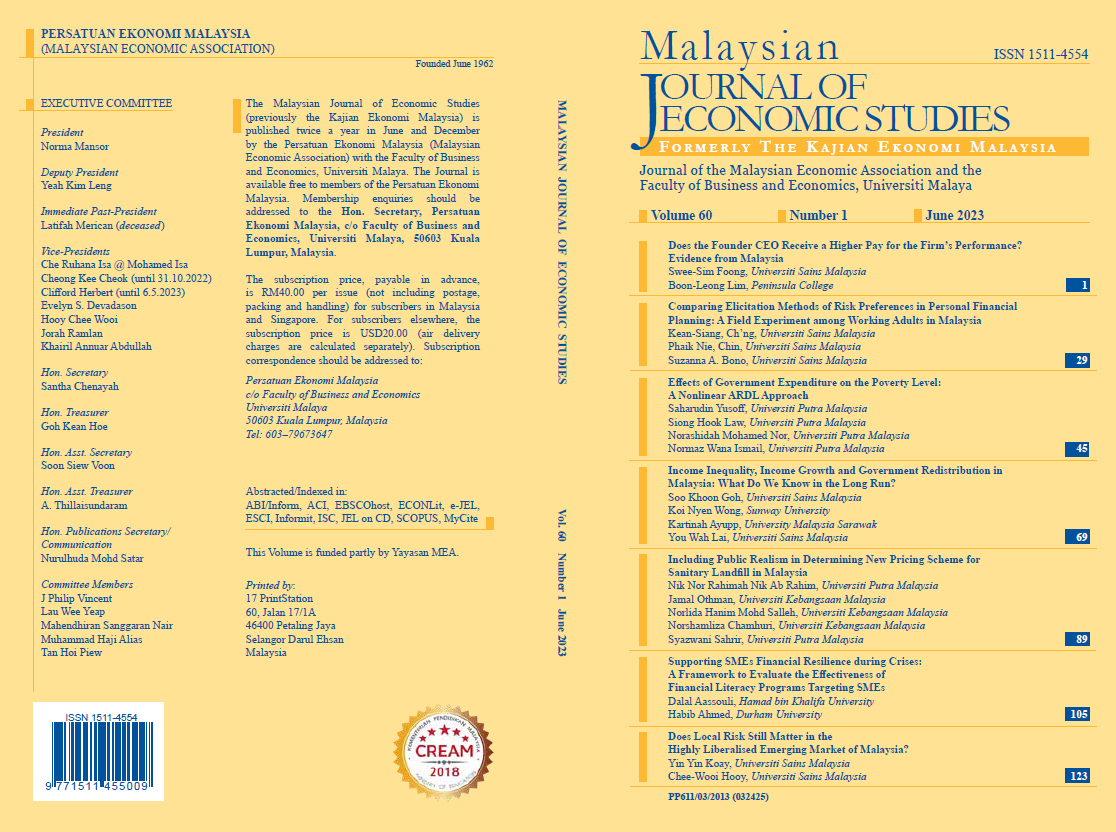Including Public Realism in Determining New Pricing Scheme for Sanitary Landfill in Malaysia
Keywords:
Solid waste disposal, sanitary landfill, choice modelling, cross-subsidiesAbstract
Financial restriction and excessive demand for solid waste disposal is a press-ing issue in developing countries. Neglecting this problem can worsen environmental damage and endanger public health. To address this challenge, this study investigated the influence of social factors on the willingness to pay for a sanitary landfill in Malaysia using choice modelling. Focusing on neighbouring districts, Kota Bharu and Bachok, where households share a crude-dumping landfill, the study collected data from 624 respondents. The findings revealed a common preference among respondents for a sanitary landfill attribute related to controlled disease vectors, with willingness to pay ranging from RM10.66 to RM13.33 per month. Interestingly, despite experiencing adverse effects from the crude-dumping landfill, respondents from Bachok still showed a preference for it. This preference could be influenced by lower mean incomes among Bachok residents who live closer to the landfill site compared to respondents in Kota Bharu. To address these dynamics, implementing cross-subsidies by charging higher prices to households in Kota Bharu and lower prices to households in Bachok could facilitate the successful implementation of the sanitary landfill. These results can inform other developing countries by highlighting the importance of considering the local social context when designing sustainable solid waste policies.

